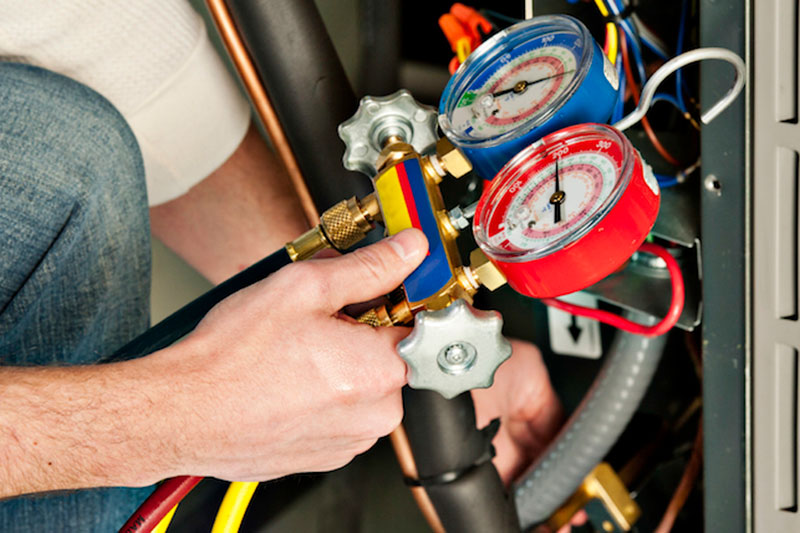
You might not think much about how your air conditioner operates, but it requires refrigerant to keep your home fresh. This refrigerant is subject to environmental laws, because of the chemicals it contains.
Based on when your air conditioner was added to your home, it may need R-22, R-410A or R-32 refrigerant. We’ll review the differences and which air conditioner refrigerants are being phased out in Columbia, in addition to how these phaseouts have on influence on you.
What’s R-22 and Why Is It No Longer Being Made?
If your air conditioner was installed before 2010, it possibly has Freon®. You can learn if your air conditioner uses it by contacting us at 601-736-7362. You can also inspect the name plate on your air conditioner condenser, which is found outside your house. This sticker will include details on what model of refrigerant your AC uses.
Freon, which is also known as R-22, contains chlorine. Scientists consider this chemical to be damaging to the earth’s ozone layer and one that results in global warming. The Environmental Protection Agency, which governs refrigerants in the United States, outlawed its production and import in January 2020.
I Use an Air Conditioner with R-22. Do I Need to Get a New One?
It differs. If your air conditioning is operating correctly, you can continue to use it. With yearly air conditioner maintenance, you can expect your AC to run around 15–20 years. However, the Department of Energy says that removing a 10-year-old air conditioner could save you 20–40% on annual cooling costs!
If you don’t install a new air conditioner, it can lead to an issue if you have to have air conditioning repair later on, specifically for refrigerant. Repairs may be pricier, as only small levels of recycled and reclaimed R-22 is on hand.
With the discontinuation of R-22, many new air conditioners now use Puron®. Also referred to as R-410A, this refrigerant was developed to keep the ozone layer strong. As it requires a varying pressure level, it doesn’t work with air conditioners that need R-22 for cooling.
However, Puron still has the potential to lead to global warming. As a result, it might also sometime be phased out. Although it hasn’t been communicated yet for residential air conditioners, it’s anticipated sometime this decade.
What Refrigerant Will Take the Place of R-410A?
In preparation of the end, some companies have started using R-32 in new air conditioners. This refrigerant ranks low for global warming likelihood—approximately one-third less than R-410A. And it also decreases energy use by approximately 10%, according to the Intergovernmental Panel on Climate Change’s Fourth Assessment Report. That’s savings that could be sent on to you through your utility costs.
Watts Electric & AC Can Provide Support with All Your Air Conditioning Needs
In summary, the alterations to air conditioner refrigerant probably won’t concern you very much until you have to have repairs. But as we discussed beforehand, refrigerant repairs might be more costly since there are the low amounts that are accessible.
Not to mention, your air conditioner usually breaks down at the worst time, typically on the muggiest day when we’re getting a lot of other calls for AC repair.
If your air conditioner uses an outdated refrigerant or is getting old, we suggest getting an up-to-date, energy-efficient air conditioner. This ensures a stress-free summer and can even decrease your utility expenses, especially if you get an ENERGY STAR®-rated air conditioner. Plus, Watts Electric & AC has many financing programs to make your new air conditioner fit your budget. Contact us at 601-736-7362 to begin now with a free estimate.
